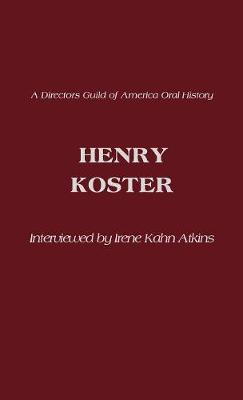Directors Guild of America Oral History
2 total works
David Butler (1894-1979) directed over a hundred theatrical and television films. In this oral history he reflects over his life and work, from the days of Inceville and D.W. Griffith to the era of filmed television Westerns and situation comedies. His first directional assignment was High School Hero (1927) for Fox studios. He then helped salvage Fox's finances with four of Shirley Temple's most engaging and profitable films starring Will Rogers in the 1930s, and a classic movie about horse racing, Kentucky (1938). After leaving Fox in 1938, Butler directed films for Warner Brothers and other studios with Bing Crosby, Bob Hope, Doris Day, Errol Flynn, Rex Harrison, Alice Faye, Ronald Reagan, Patricia Neal, Kay Kyser, and a host of other musical and comedy stars. One of the best of his films is Thank Your Lucky Stars (1943), with an all-star cast and a lilting score, highlighted by Bette Davis singing and jitterbugging. When Butler switched from theatrical films to television, he directed such popular TV shows as Wagon Train, Buckskin, General Electric Theater, and Leave it to Beaver. Modestly describing himself as a "commercial director" who excelled at completing projects under tight schedules, Butler deserves a place in American film history for his contribution of well-crafted popular films featuring some of the legendary entertainers of the 30s, 40s, and 50s.
Of the many film artists displaced by Hitler, Henry Koster was among the few who successfully adapted to the American studio system. Although Koster directed 45 successful motion pictures in a wide variety of genres, he is best known for Three Smart Girls, Harvey, such musicals as Stars and Stripes Forever, and films with religious backgrounds, including the first CinemaScope film, The Robe. All of these share the interplay of warm human feelings that is a trademark of Koster's motion pictures.

